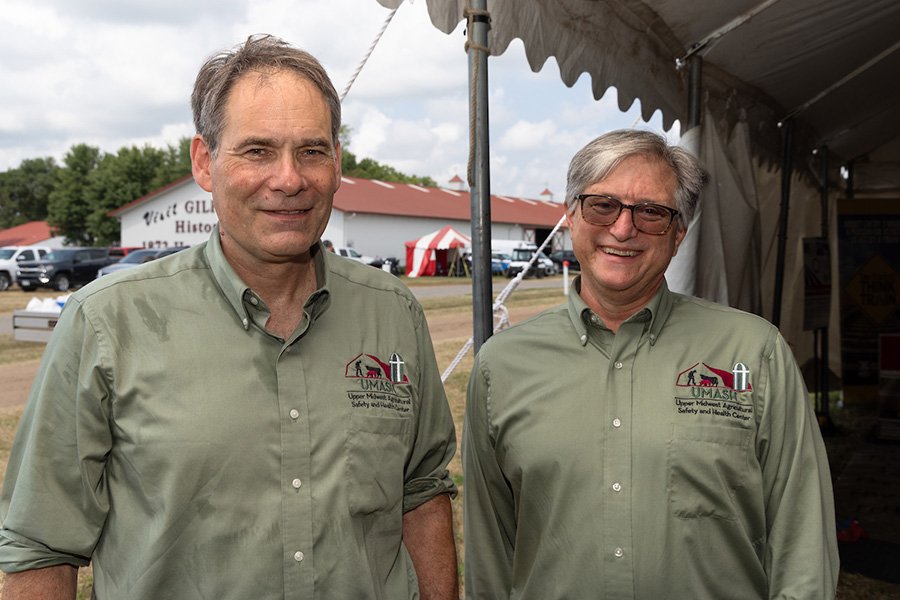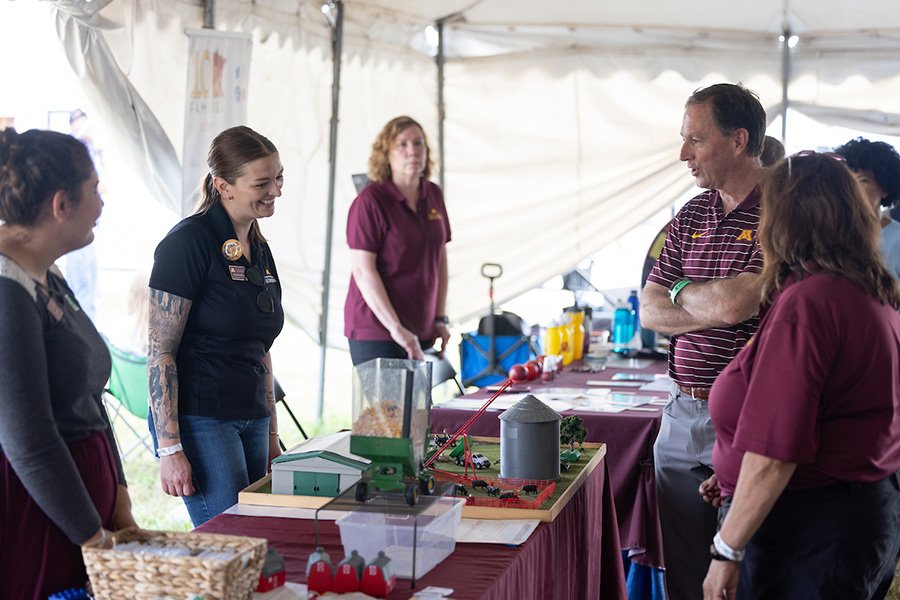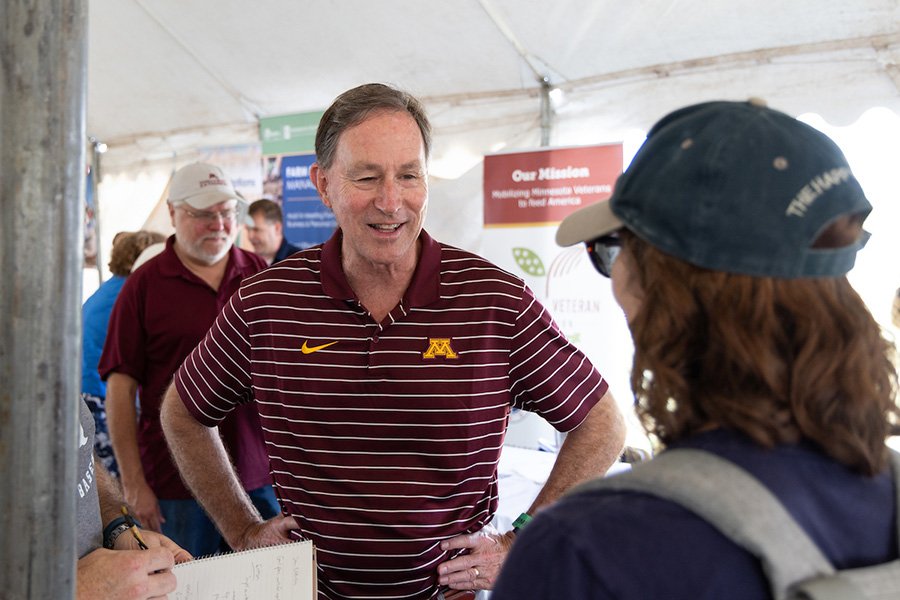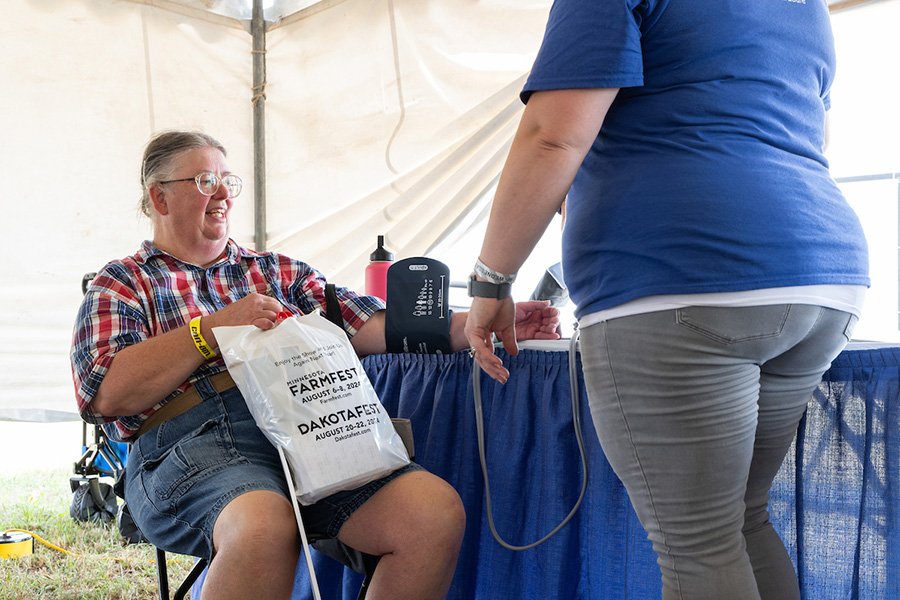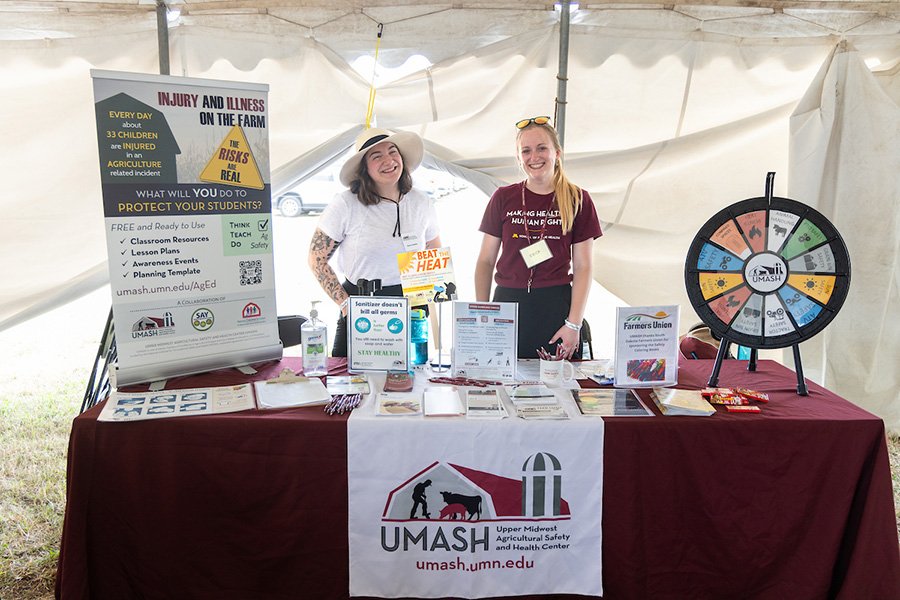Consistently ranked as one of America’s most stressful and dangerous professions, farming has never been easy. But, climate change-related weather trends — scorching heat, drought, wildfire smoke — have upped the ante in recent years. As if to underscore the adversity farmers face on a daily basis, Redwood County — the locale for the annual Minnesota Farmfest gathering — was recently declared a federal disaster area due to this year’s unrelenting drought conditions.
Helping agricultural workers confront these challenges and perform their work as safely as possible is central to the mission of the Upper Midwest Agricultural and Safety Center (UMASH), which has been hosting a pavilion at Farmfest for the past several years. Housed in the University of Minnesota School of Public Health (SPH), UMASH is dedicated to improving the health and safety of people who work in the agricultural industry across five states in the Upper Midwest: Iowa, Wisconsin, Minnesota, and the Dakotas.
For Jeff Bender, a professor at SPH and UMASH’s director, coming to Farmfest is a way to make connections and learn from people who live in rural communities and work in the agricultural industry. “In public health, one of the most important things we do is engage with our communities to understand their experiences,” Bender said. “And being here at Farmfest is a perfect way to do that.”
With over 30,000 annual visitors and a vast array of offerings — from crop-dusting drone demonstrations to fried-food booths and farm machinery displays — Farmfest feels like the State Fair’s warm-up act. UMASH’s Wellness Pavilion at Farmfest has three main components that attract people to its large tent: live safety demonstrations such as ATV rollover prevention and grain-bin safety, health screenings (blood pressure checks administered by CentraCare), and wellness and safety exhibitors, which ranged from train track safety organizations to groups focused on toxins and pollutants.
UMN Interim President Jeff Ettinger visited UMASH’s pavilion during his recent visit to Farmfest, and came away impressed. “It’s inspiring to see all the meaningful ways the University is interacting with rural communities and helping make life better for people in Greater Minnesota,” he said.
As visitors stop to chat in the pavilion, UMASH Evaluation and Communications Manager Devon Charlier said she is struck by the number of people who share stories about their farm safety experiences: “People come in and tell us about their dad or their niece or a grandparent who experienced some sort of devastating incident on the farm. And hearing those stories is so impactful because it makes a connection between people’s lived experiences and the work we’re doing to help prevent incidents like that.”
It’s this kind of interaction and feedback that gave rise to one of UMASH’s key priorities — a focus on mental health awareness. “In the past, mental health was not seen as a farm issue,” Bender noted. “But in visits to rural communities and interactions in places like Farmfest, people would say ‘What are you doing on mental health issues?’ That message from the community kept coming back to us, and feedback from the community is what drove our focus on mental health awareness.”
Professor Bruce Alexander, UMASH’s founding director and head of SPH’s Environmental Health Science division, pointed out several organizations in the Wellness Pavilion who focus on mental health issues. “We’re not able to solve this problem directly, but we’ve been successful in recognizing the problem and bringing organizations together to help address it,” Alexander noted.
It’s a challenging time to be a farmer — and even simply a resident of a rural community. As the two-hour drive from the Twin Cities to Redwood County makes clear, rural Minnesota is struggling economically; in town after town, storefronts sit empty along once thriving main streets. For agricultural workers in these areas, changing weather patterns are yet another variable that must be confronted. “Uncertainty of weather has been noted as one of the most impactful stressors for farmers,” said Megan Schossow, UMASH’s Center Coordinator and Director of Outreach, citing research that found that farmers feel stressors they can’t control most intensely.
As rural communities and agricultural workers face these challenges, UMASH will continue to pursue its mission to improve the health and safety of agricultural workers, owner-operators, and communities in the Upper Midwest.

